3 Jul 2018 | Digital Freedom, News and features
[vc_row][vc_column][vc_single_image image=”101103″ img_size=”full” add_caption=”yes”][vc_column_text]Cultural stereotyping, extremism, a patriarchal society, a deficit of safe and secure educational environments, verbal and sexual harassment. These are the terms that Fereshteh Forough, founder of Afghanistan’s first ever coding school for girls uses to describe what women face in her country every day.
This repression continued after the fall of the Taliban in 2011, the Code to Inspire CEO told Index on Censorship, and still “prevents women from participating in many social activities outside of their hometown”.
Forough is working to open up online spaces for women and hopes that in doing so these digital freedoms will break down social and economic barriers in Afghanistan. Code to Inspire’s first school opened in Afghanistan in 2015 and teaches girls how to programme. By empowering young women Forough hopes to carve a way through the digital space, which mirrors the male-dominated spaces of their lives, so they can participate in the economic market in Afghanistan and gain independence. “Knowledge is power and technology is the tool for empowerment,” she said.
Harnessing technology is a way, Forough believes, of liberating women in all aspects of their lives. It is a way of using progress to combat regression. “Looking at the technology and how it enables people to cross borders without geographical boundaries and share their stories is such an empowering tool,” she explains.
“For an Afghan woman who can not commute due to family restrictions or safety reasons to other cities or outside, it can help her to explore the world virtually, get connected to the people outside of Afghanistan and feel more confident.”
Connecting
Internet use in Pakistan and Afghanistan is far from straightforward and being a woman makes it even harder.
Internet access in Afghanistan has much improved since the fall of the Taliban. Yet despite the current government’s recognition of the tool as important for the country’s development, problems remain. The CIA factbook reported in 2016 that only an estimated 10.6% of the country’s population had access to the internet. The National Unity Government is working to end gender inequality and there are more women holding positions of power than at any other time in history. 27.7% of seats in parliament are held by women. But according to Global Rights Study, 87% of women experience physical, sexual or psychological violence in their lives. Stigma still surrounds female education despite rising numbers in school attendance.
Freedom House concluded in their 2017 Freedom of the Net report that Pakistan’s internet is “not free”. Starting in June 2016, Pakistan’s mobile internet service was shut off for more than a year in Federally Administered Tribal Areas. The internet has been shut down several other times at politically divisive moments. As the country comes up to an election this year, Freedom House predicts internet shutdowns and for political speech to be restricted online.
The country’s first comprehensive cybercrime act was passed in 2016 by the National Assembly and Senate, enabling censorship and surveillance. Alongside infrastructure limitations, taxes on the internet are high and prevent the majority of the population from connecting. Many rural areas remain offline due to ongoing conflict or underdevelopment.
“Women are being excluded from the digital revolution”
While progress may be slow and the internet unstable, going online presents fresh possibilities and challenges for women in these neighbouring countries. As new technologies clash with historically patriarchal cultures, being connected means being seen. Being plugged in provides greater scope for education and potential participation in an ever-expanding jobs market. Online spaces, ideally, enable democratic discussion and freedom of expression. But in societies where independent women can be regarded as shameful, prejudice inevitably follows them into online spaces.
Mats Granryd, director general of the UN’s Working Group on the Gender Digital Divide said in their 2017 report: “Mobile is the dominant platform for internet access in many parts of the world. The issue is that while mobile connectivity is spreading quickly, it is not spreading equally.” Oliver Rowntree reported from GSMA’s Connected Women’s Study 2018: “Women are being excluded from the digital revolution. Only 10% of women in Pakistan use mobile internet compared to 26% of men.”
Access to technology and autonomy online are difficult, however. Access is often monitored by male family members or connections. Some women are fatally endangered through online activity.
In 2016 Qandeel Baloch died after being strangled by her brother for her social media presence. In his confession, he said: “Girls are born only to stay at home and to bring honour to the family by following family traditions.” Online harassment is rife and further discourages women from accessing information communication technologies, especially with social support in such situations unlikely.
“The digital divide between men and women in Pakistan is among the highest in the world as a result of religious, social, and cultural restrictions on women owning devices,” Freedom House’s report outlines. Militant Islamic attacks have also been carried out on internet cafes for encouraging moral corruption.
Professor Deborah Wheeler has lectured throughout the Middle East and Europe about her research into the internet’s impacts on women. She currently works in the United States Naval Academy’s Political Science Department. Wheeler is passionate about the potential for technology to empower women everywhere.
She tells Index on Censorship: “Given social constraints on women’s movement, participation in public life, dress, expectations and voice in the Muslim world, digital communication gives women tools with which to create change on issues which directly affect their lives.”
“While censorship and punishment for violating media laws by directly opposing the government online do occur, what I find more interesting and more promising as a force for change in women’s lives, are the kinds of widespread experimentation with voice and agency taking place in everyday life.”[/vc_column_text][/vc_column][/vc_row][vc_row][vc_column][vc_raw_html]JTNDZGl2JTIwc3R5bGUlM0QlMjJtYXgtd2lkdGglM0E4NTRweCUyMiUzRSUzQ2RpdiUyMHN0eWxlJTNEJTIycG9zaXRpb24lM0FyZWxhdGl2ZSUzQmhlaWdodCUzQTAlM0JwYWRkaW5nLWJvdHRvbSUzQTU2LjI1JTI1JTIyJTNFJTNDaWZyYW1lJTIwc3JjJTNEJTIyaHR0cHMlM0ElMkYlMkZlbWJlZC50ZWQuY29tJTJGdGFsa3MlMkZuaWdoYXRfZGFkX2hvd19wYWtpc3Rhbmlfd29tZW5fYXJlX3Rha2luZ190aGVfaW50ZXJuZXRfYmFjayUyMiUyMHdpZHRoJTNEJTIyODU0JTIyJTIwaGVpZ2h0JTNEJTIyNDgwJTIyJTIwc3R5bGUlM0QlMjJwb3NpdGlvbiUzQWFic29sdXRlJTNCbGVmdCUzQTAlM0J0b3AlM0EwJTNCd2lkdGglM0ExMDAlMjUlM0JoZWlnaHQlM0ExMDAlMjUlMjIlMjBmcmFtZWJvcmRlciUzRCUyMjAlMjIlMjBzY3JvbGxpbmclM0QlMjJubyUyMiUyMGFsbG93ZnVsbHNjcmVlbiUzRSUzQyUyRmlmcmFtZSUzRSUzQyUyRmRpdiUzRSUzQyUyRmRpdiUzRQ==[/vc_raw_html][vc_column_text]Time for change
Like Forough, Nighat Dad, who runs Pakistan’s Digital Rights Foundation, is trying to enable just that. A digital rights lawyer and activist in Pakistan, she is fighting against women’s exclusion from online spaces and working to ensure safety online. She told TED: “It’s how patriarchal norms treat women in offline spaces, and the same mindset is true in online spaces.”
Dad explains that her family forbade her from having a phone as a young woman. Her husband, from whom she is divorced, allowed her to have a phone but it was so strictly monitored she says it felt more like a surveillance device. She founded the Digital Rights Foundation, which like Code to Inspire was shortlisted for a 2018 Index on Censorship Freedom of Expression Awards Fellowship, in 2012 to defend women’s rights online. They recently established a helpline for women experiencing harassment online.
Women, who make up only 20-25% of internet users in the country, are regularly subjected to revenge porn, harassment, blackmail, privacy violations and more. As a result, they retreat from online spaces. Dad wants to prevent this silencing of women’s voices.
The DRF said: “Digital Rights Foundation envisions a place where all people, and especially women, are able to exercise their right of expression without being threatened.”
Hope
Thanks to the courage and persistence of women like Forough and Dad, things are changing in Afghanistan and Pakistan. Forough is not letting a lack of resources hold her back. “Sometimes you don’t have the available resources to succeed,” she said. “As a refugee born, I learned to be scrappy and resourceful. Change is possible, no matter who or where you are!”
Over email, she quotes Rumi. “‘Where there is ruin, there is hope for a treasure.’ From the ruins of a shattered nation and shattered lives of refugees can come treasure, if we know where to find it. We hope to empower this generation of young women in Afghanistan with technology so that the next generation will be peacebuilders and not war makers.”
Women like Nighat and Fereshteh are forging a new future for women, both online and off. Nighat tells Index on Censorship she hopes for “A future where women don’t have to fight for the rights they were born with, a future that is without discrimination and is safe, inclusive and free for everyone.”[/vc_column_text][/vc_column][/vc_row][vc_row][vc_column][three_column_post title=”Digital Freedom” full_width_heading=”true” category_id=”4883″][/vc_column][/vc_row]
3 Apr 2018 | Awards, Fellowship 2018, News and features
[vc_row][vc_column][vc_video link=”https://youtu.be/1Tgkm4m3W7c”][vc_column_text]The Digital Rights Foundation based in Pakistan have been nominated for its work on a cyber-harassment helpline which was set up a year ago and has supported more than a thousand women.
It is the first service of its kind in Pakistan and helps women report cyber-harassment regardless of where they live in the country. The helpline is important because it is an innovative and practical way of challenging women’s exclusion from online spaces and bolstering women’s rights to freedom of expression.
DRF was founded by digital rights activist Nighat Dad. As well as the helpline, the organisation provides training for women in online harassment, carries out advocacy work for a safe internet and raises awareness of digital security and censorship issues.
“Digital Rights Foundation envisions a place where all people, and especially women, are able to exercise their right of expression without being threatened,” said DRF. “We believe that free internet with access to information and impeccable privacy policies can encourage such a healthy and productive environment that would eventually help not only women, but the world at large”.
The impetus behind the helpline was the murder last summer of the Pakistani social media celebrity Qandeel Baloch who had a million followers and lived in a small provincial town in Punjab.
She was killed by her brother for her sexually confident posts on Facebook, posts which would be normal in Western countries. In small town conservative Pakistani society, dominated by religious leaders they caused outrage.
While Baloch’s was an extreme case, women online – who make up only 20 to 25% of the online population – routinely face bullying including revenge porn, blackmail, impersonation, non-consensual usage of personal information, privacy violations and other kinds of harassment. Women are afraid to report how badly they are treated and so react by withdrawing from online spaces.
This silencing of female voices and the exclusion of women from social media and other sites, which mirrors the exclusion of women from public spaces and public life generally in Pakistan, is a significant threat to freedom of expression.
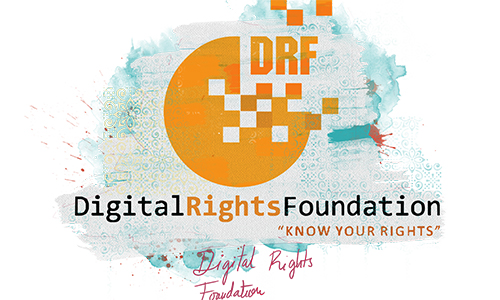 The support team includes a qualified psychologist, digital security expert, and trained lawyer, all of whom provide specialised assistance. The helpline helps women, children, human rights defenders, minority communities and anyone who might feel unsafe in digital spaces. It receives around 80 calls a month, and 60% of the requests for help are from women. Quite a few are also from men seeking advice on behalf of women.
The support team includes a qualified psychologist, digital security expert, and trained lawyer, all of whom provide specialised assistance. The helpline helps women, children, human rights defenders, minority communities and anyone who might feel unsafe in digital spaces. It receives around 80 calls a month, and 60% of the requests for help are from women. Quite a few are also from men seeking advice on behalf of women.
Staff ensure victims can make official reports of harassment to the authorities. As law enforcement offices where victims can file a complaint are only located in provincial capitals, it can be extremely difficult for victims in more remote parts of the country to initiate an investigation. To address this, the helpline has its own legal officer who can pursue cases on behalf of victims.
The helpline team produce reports every six months, which include an analysis of the kind of issues callers ring in about, and recommendations for action by Pakistani institutions responsible for online safety to make sure that women’s voices are heard.
“We at Digital Rights Foundation are honoured to be nominated for the Index on Censorship Freedom of Expression Awards.” said DRF. “The recognition means a great deal to us especially given the shrinking spaces for activists both online and offline. The Award will go a long way in lending legitimacy to our work and will amplify our dissent in favour of a free and safe internet”.
See the full shortlist for Index on Censorship’s Freedom of Expression Awards 2018 here.[/vc_column_text][/vc_column][/vc_row][vc_row full_width=”stretch_row_content” equal_height=”yes” el_class=”text_white” css=”.vc_custom_1490258749071{background-color: #cb3000 !important;}”][vc_column width=”1/2″][vc_custom_heading text=”Support the Index Fellowship.” font_container=”tag:p|font_size:28|text_align:center” use_theme_fonts=”yes” link=”url:https%3A%2F%2Fwww.indexoncensorship.org%2Fsupport-the-freedom-of-expression-awards%2F|||”][vc_column_text]
By donating to the Freedom of Expression Awards you help us support
individuals and groups at the forefront of tackling censorship.
Find out more
[/vc_column_text][/vc_column][vc_column width=”1/2″ css=”.vc_custom_1521479845471{background-image: url(https://www.indexoncensorship.org/wp-content/uploads/2017/05/2017-awards-fellows-1460×490-2_revised.jpg?id=90090) !important;background-position: center !important;background-repeat: no-repeat !important;background-size: cover !important;}”][/vc_column][/vc_row][vc_row][vc_column][vc_basic_grid post_type=”post” max_items=”4″ element_width=”6″ grid_id=”vc_gid:1522917764760-5edc93c3-6e5f-7″ taxonomies=”10735″][/vc_column][/vc_row]
8 Mar 2018 | Awards, News and features
[vc_row][vc_column][vc_column_text]From a journalist issued death threats for her investigative work and a activist who helps women and girls learn computer programming to foster female economic independence, to an organisation that provides support for female victims of online harassment, the 2018 Index on Censorship Freedom of Expression Awards shortlist includes women who work with bravery and persistence in the face of adversity.
On International Women’s Day, we celebrate and honour the amazing women on our awards shortlist.
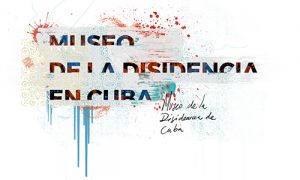 The Museum of Dissidence was co-founded by curator Yanelys Nuñez Leyv in Cuba. Nuñez Leyva was previously a staff writer at a magazine published by the ministry of culture until she was fired for her involvement with the museum. Despite this, she has continued her involvement with the museum organising radical public art projects and installations. The museum also seeks to reclaim a positive notion of the word “dissident” in Cuba.
The Museum of Dissidence was co-founded by curator Yanelys Nuñez Leyv in Cuba. Nuñez Leyva was previously a staff writer at a magazine published by the ministry of culture until she was fired for her involvement with the museum. Despite this, she has continued her involvement with the museum organising radical public art projects and installations. The museum also seeks to reclaim a positive notion of the word “dissident” in Cuba.
 The women-run campaign Open Stadiums asserts a woman’s rights to attend public sporting events in Iran. The campaign challenges the country’s current religious and political regime while engaging women in human rights conversations previously deemed unimportant. Iranian women face many restrictions in public spaces and Open Stadiums has generated conversations on their right to attend public events which is currently a taboo in the country.
The women-run campaign Open Stadiums asserts a woman’s rights to attend public sporting events in Iran. The campaign challenges the country’s current religious and political regime while engaging women in human rights conversations previously deemed unimportant. Iranian women face many restrictions in public spaces and Open Stadiums has generated conversations on their right to attend public events which is currently a taboo in the country.
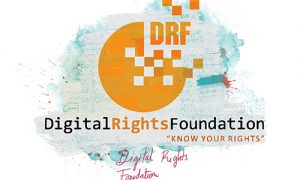 Digital Rights Foundation is a cyber-harassment hotline based in Pakistan that helped over one thousand women in its first year. DRF provides a harassment helpline team which includes a digital security expert, a trained lawyer and a qualified psychologist, all of which can provide specialised assistance to women.
Digital Rights Foundation is a cyber-harassment hotline based in Pakistan that helped over one thousand women in its first year. DRF provides a harassment helpline team which includes a digital security expert, a trained lawyer and a qualified psychologist, all of which can provide specialised assistance to women.
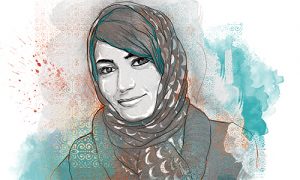 Digital Activism nominee Fereshteh Forough is the founder of Code to Inspire, a project that helps women and girls learn to code. The programme fosters female economic independence and broaden commercial opportunities for women in a patricahal society.
Digital Activism nominee Fereshteh Forough is the founder of Code to Inspire, a project that helps women and girls learn to code. The programme fosters female economic independence and broaden commercial opportunities for women in a patricahal society.
 Journalist Wendy Funes risks her life for the right to report in Honduras. Journalists in the country face a harsh and repressive environment, but Funes continues to report on corruption, injustice and violence against women in a country where one woman on average is killed every 16 hours. [/vc_column_text][/vc_column][/vc_row][vc_row][vc_column][vc_basic_grid post_type=”post” max_items=”2″ element_width=”12″ grid_id=”vc_gid:1520503493497-3165bd85-48fb-3″ taxonomies=”10735″][/vc_column][/vc_row]
Journalist Wendy Funes risks her life for the right to report in Honduras. Journalists in the country face a harsh and repressive environment, but Funes continues to report on corruption, injustice and violence against women in a country where one woman on average is killed every 16 hours. [/vc_column_text][/vc_column][/vc_row][vc_row][vc_column][vc_basic_grid post_type=”post” max_items=”2″ element_width=”12″ grid_id=”vc_gid:1520503493497-3165bd85-48fb-3″ taxonomies=”10735″][/vc_column][/vc_row]
17 Apr 2014 | Digital Freedom, News and features, Pakistan
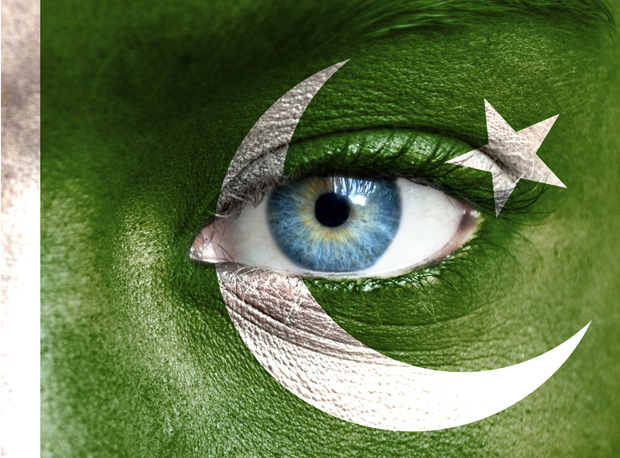
(Image: Aleksandar Mijatovic/Shutterstock)
As states have been revealed to be snooping on citizens and other governments, and we are confronted by data breaches and security issues like the latest Heartbleed crisis, more people are becoming aware of their internet rights. Voters and civil society around the world are pushing their governments to provide secure and private online spaces for internet users. It is quite refreshing to see Pakistan’s government working for internet laws. However, though some provisions of the proposed Computer Crimes Law (CCL) are copied from other countries’ legislation, several parts of the draft version violate international human rights, including the freedom of expression.
In an attempt to offer support to the government of Pakistan, Article 19 and Digital Rights Foundation Pakistan dissected the draft legislation to point out the provisions that need to be amended, and to help the government conform to international human rights norms. It is mandatory at this point to pressure the government to put in place better internet legislation in order to avoid future misuse of the legal framework, as has happened with other laws.
A leading example of how such poorly devised laws help authorities abuse power is the Monitoring and Reconciliation of International Telephone Traffic Regulations (MRITT), also known as the Grey Traffic legislation. Passed in 2010 to help the government ban anonymous communication and VPN usage, MRITT mandates the monitoring and blocking of any encrypted and unencrypted traffic that originates or terminates in Pakistan, including phone calls and data.
MRITT legitimised blocking and internet monitoring on a massive scale — allowing a ban on VPN and VoIP services like Skype, Viber, WhatsApp and SpotFlux among others. The implementation of this legislation raises several concerns especially among the business community of Pakistan. The first official notification citing the MRITT to block VPN was issued in July 2011, targeting “all mechanisms which conceal communication to the extent that prohibits monitoring”.
The global reliance on the internet for communications and the, at times, complete blackouts of certain services by the government of Pakistan pose serious economic challenges. Not only business, but educational activities are hampered by the implications of MRITT. It also affects the privacy rights of Pakistani citizens. License deploying monitoring systems are expected to provide data — including a complete list of Pakistani consumers and their details — to the authorities when required under sub clause 6(d) of Part II of the regulation.
The Pakistan Protection Amendment Bill 2014 is another scary example of a woolly worded law. It was recently passed by Pakistan’s national assembly and is awaiting approval by the senate. Human Rights Watch stated that: “The vague definition of terrorist acts, which could be used to prosecute a very wide range of conduct — far beyond the limits of what can reasonably be considered terrorist activity. Besides ‘killing, kidnapping, extortion,’ the law classifies highly ambiguous acts including ‘Internet offences’ and ‘disrupting mass transport systems,’ as prosecutable crimes without providing specific definitions for such offences.”
The latest version of the Computer Crimes Law has been drafted by the Ministry of Information Technology and Telecommunications (MoITT). The proposed law establishes various computer crimes and sets out rules for investigation, prosecution and trial of these offences. Acts such as illegal access to and interference with programs, data or information systems; cyber terrorism; electronic forgery and fraud; making of devices for use in these types of offences; and unauthorised interception of communication are included. Like MRITT, it is feared that the Computer Crimes Law in its current draft form, if passed, would include several violations to the International Covenant on Civil and Political Rights (ICCPR), to which Pakistan acceded in 2010.
The concerns over the Computer Crimes legislation mentioned by Article 19 and Digital Rights Foundation, include lack of proper definitions of terms like content, data, information system or program. Their recommendations also highlight concerns about broader cyber-terrorism offences under Section 7 (a) and (b), and more importantly, the lack of procedural safeguards against unchecked surveillance activities carried out by the country’s intelligence agencies.
At this stage of the process, it is important for regional and international civil society and internet privacy rights groups to put pressure on the government of Pakistan to make the right amendments to the law before passing it. This law is extremely important for providing safety and security to Pakistani internet users and cannot be abolished or delayed. It is only right, then, that it introduces correct and clearly defined provisions to make it effective, and not vulnerable to abuse by authorities.
This article was published on 17 April 2014 at indexoncensorship.org


 The support team includes a qualified psychologist, digital security expert, and trained lawyer, all of whom provide specialised assistance. The helpline helps women, children, human rights defenders, minority communities and anyone who might feel unsafe in digital spaces. It receives around 80 calls a month, and 60% of the requests for help are from women. Quite a few are also from men seeking advice on behalf of women.
The support team includes a qualified psychologist, digital security expert, and trained lawyer, all of whom provide specialised assistance. The helpline helps women, children, human rights defenders, minority communities and anyone who might feel unsafe in digital spaces. It receives around 80 calls a month, and 60% of the requests for help are from women. Quite a few are also from men seeking advice on behalf of women. The Museum of Dissidence
The Museum of Dissidence The women-run campaign
The women-run campaign  Digital Rights Foundation
Digital Rights Foundation Digital Activism nominee
Digital Activism nominee  Journalist
Journalist 